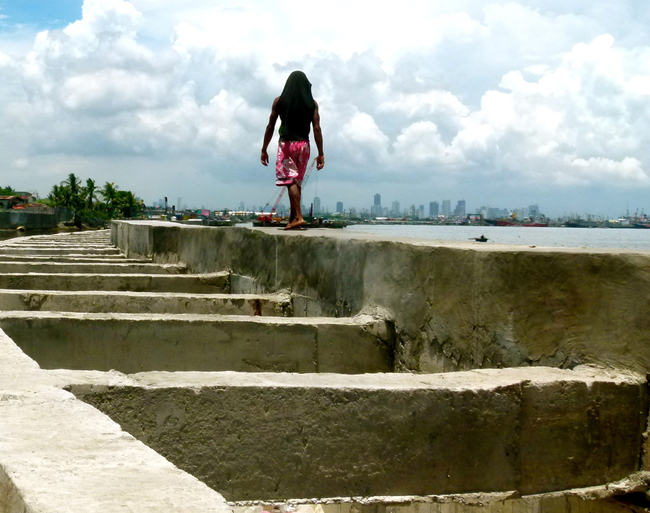12.10.2018 | Three megacities by the sea: Singapore, Jakarta, Manila. What will happen to their 40-million-odd inhabitants when sea levels rise? “Singapore has been preparing for this threatening scenario for years with standardised infrastructure measures,” says Prof. Dr. Anna-Katharina Hornidge, head of ZMT’s Social Science Department. The city-state reinforces the coastline and implements the recommendations made by the Intergovernmental Panel on Climate Change (IPCC). Singapore acts technocratically and efficiently according to Hornidge, training many internationally-connected scientists, bureaucrats and decision-makers. So far, there is not much evidence of a threatening rise in relative sea levels in Singapore, unlike Jakarta and Manila, the social scientist explains. “These cities are already sinking into the water, but not because of a rise in the sea level but due to compressing swampland. What is being built, is too heavy, too high and too near to the coast – and everyday groundwater extractions take their additional toll.”
Jakarta has developed a master plan to save the homes of some 30 million people from being flooded. A habitable sea wall – the “Great Garuda” – will be built in the middle of Jakarta Bay - known to the Chinese who live there as “The Dragon's Mouth”. “The public discourse on how to live with sea level change draws on local mythologies and is substantially politically charged,” Hornidge explains. “By studying these discourses and the different adaptation strategies employed, we aim at understanding the different ways of making sense of sea level change, and the rationales for preparing for it in one or the other way.”
A living lab
Since the predictions about the rise in water levels are being taken seriously in all three urban contexts, these megacities are living laboratories. “Floods in your living room due to subsidence or extreme weather events are already a reality for those living along the coast in Jakarta. And the search for appropriate responses to these challenges is in full swing,” Anna-Katharina Hornidge explains. “Social learning processes can be observed.” Together with her colleagues at ZMT and the Sustainability Research Center (artec) at the University of Bremen, she is currently exploring how the necessary knowledge can “travel” and be transferred to specific contexts – basic research on learning processes of relevance to coastal cities, for living with a future in which the oceans will swell.





